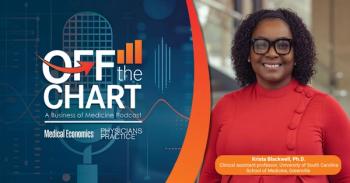
The Problems with Direct-to-Consumer Pharma Advertising
While there may be a benefit to pharmaceutical companies advertising to consumers directly, this doctor sees too many problems with it.
"Ask your doctor if Drug X is right for you." How many times a day do we hear that on TV or on the radio? How many ads to people see in magazines? Online? And what impact does that have on healthcare and healthcare expenditures?
I can see some upside to direct-to-consumer advertising. If someone has a chronic symptom that they just chalked up to age or that they thought was not treatable, they may realize that it is worthwhile seeing a medical professional about it. Or if they have a symptom they are embarrassed to mention, like erectile dysfunction or urinary incontinence, they may feel more comfortable mentioning to their doctor. After all, if they can talk about it on TV during prime time it must be a common problem right? Some ads are almost a public service announcement, for example, like those for vaccines.
But very often, much too often, direct-to-consumer ads lead to uncomfortable, if not difficult, physician-patient encounters.
I have patients whose diabetes is well controlled, who are tolerating their current meds just fine who say, "I see all these ads for new drugs for diabetes, can't I be on something better?" Or conversely, "Doc, I saw an ad for this drug I'm taking, and they said it can cause death!" The first scenario is a little easier. I tell them that "better" depends on the person, that if the meds they are taking are no longer sufficient that we can make a change, but why fix what's not broken. The second is a little harder. I need to explain "fair and balanced" advertising. I need to explain risks and benefits. I tell them there are no drugs, not even over-the-counter drugs (including supplements) that don't have the potential to cause side effects.
Then there are patients that misunderstand some of the statements made in the ads. For example, I have many patients who take a long-acting insulin once a day and a rapid-acting insulin before meals. The ads for Toujeo (a new basal insulin) say that it is an insulin that only needs to be taken once a day. So my patients come in and say, "I saw this ad for an insulin that you only need to take once a day. Can I switch to that?" I tell them that they are already taking a once daily insulin. "But I have to take insulin at meal times, too." Yes, and you still will if I switch you from Lantus to Toujeo.
Or I'll have patients convinced that they have diabetic neuropathy (nerve damage) because they saw an ad for Lyrica when what they really have is gout. Yeah, different kind of foot pain.
In many other countries, pharmaceutical companies can only advertise to physicians. This seems to make more sense to me. Physicians are in a better position to understand if "Drug X is right for you". Imaging the healthcare dollars saved - saved by less advertising, less doctor visits, less unnecessary prescriptions. DTC advertising furthers the notion that healthcare is just another consumer business.
Newsletter
Optimize your practice with the Physicians Practice newsletter, offering management pearls, leadership tips, and business strategies tailored for practice administrators and physicians of any specialty.








